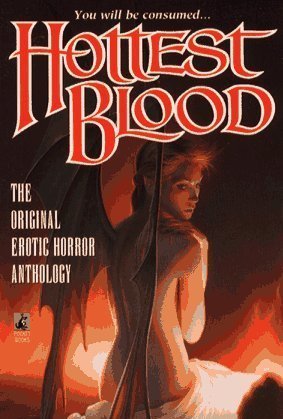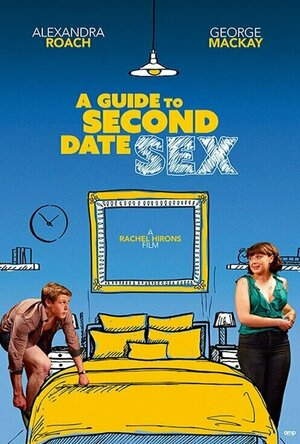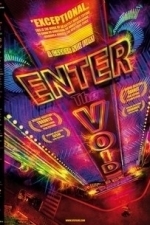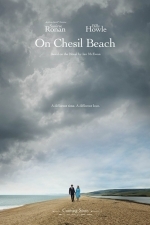
High Risk: A Strong Woman Medical Romance
Book
One overworked lady doctor has found the perfect guy. He's smoking hot, a fabulous dancer, and...
Romantic suspense multicultural romance action adventure romance medical romance
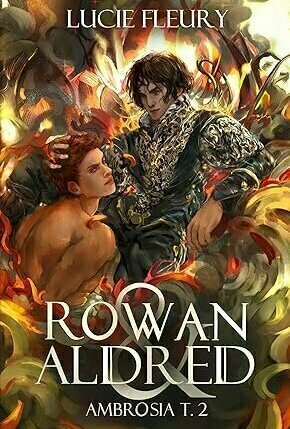
Rowan & Aldred (Ambrosia #2)
Book
Rowan is a bully. Always has been, always will be. After all, what better way to prevent people from...
Dark MM Fantasy
Mandy and G.D. Burkhead (26 KP) rated Hottest Blood: The Ultimate in Erotic Horror in Books
May 20, 2018
I like short story compilations because you get a variety of content that’s just as easy to breeze through if you have the time as it is to get to a stopping point and put down if you don’t. I like horror fiction because it usually involves the super-natural, which interests me, and intense emotional responses, which are almost always a good thing in writing. And I like eroticism because I am a warm-blooded human being with a pulse. However, on the whole, I do not like Hottest Blood.
I wanted to, I did. Look at that cover. It’s equal amounts scary and sexy, both in completely safe, PG-13-at-most kind of ways. Unfortunately, Softcore Succubus here is both the scariest and the sexiest thing about this book
Bluntly analogized, you know that feeling you get when you come across something on the internet that disturbs and/or disgusts you, and then you learn that there’s a dedicated group of people that gets off on it? Most of the stories in this book are that feeling captured in words.
Case in point, the story “Damaged Goods” by Elizabeth Massie, which as far as I can tell is about a couple of physically abused, emotionally damaged, developmentally stunted kids somewhere around their early teens who live with a religious fringe cult being led out to a field to have sex with each other while a nameless U.S. President watches and masturbates before both kids are drowned in a river by their preacher/pimp caretaker.
Or there’s “Mr. Right” by Chris Lacher, which tells the story of a college student named Russ who has a secret fetish for the deformed women in the freak show at a nearby carnival – a fascination which leads to him getting held down and forcibly raped by a group of unwashed subhuman mutants, which the detailed descriptions make sure you understand are completely revolting to all five senses. The story ends with him being dumped out behind the fairgrounds while a small, legless girl happily informs him that this is how all carnival workers reproduce, and he can look forward to seeing his own mutant rape-spawn in the show next year.
Or there’s “Abuse” by Matthew Costello, which simply shows us how the arrest of a Peewee Herman surrogate goes down in an adult movie theater before ending with another man jerking off with the cold, dry, severed hand in his pocket as he contemplates getting a new one to replace it.
The tone of these three are pretty much par for the course for the rest of the book: thoroughly disturbing, and sex is involved, but the disturbing feeling stems from revulsion rather than fear, and the sex bits are so far on the other end of the spectrum from erotic that it feels like the authors are trying to punish their readers for even expecting to be aroused in any way.
Of course, I said myself earlier that intense emotional responses are “almost always a good thing in writing.” By that merit alone, this book technically succeeds; in fact, if it had billed itself as shock fiction instead of erotic horror, I’d begrudgingly give it a medal in its class. The “aw, what the hell?!” moments are not as artistically executed as, say, a Chuck Palahniuk read, and they tend not to have as much depth to them, but strictly in terms of making you wish that you could unread words, they get the job done.
But that isn’t the job that Hottest Blood was hired to do, and that’s not what it put on its resume. It said it was going to “heat the blood and chill the mind,” and promised that “terror never felt this sexy!” It would have been more appropriate to say that “sex never felt this terrible.”
All of that said, if you abandon any hope of seeing anything resembling erotica or horror (scary horror, anyway), there are a few stories in here that are decent reads – mostly because they try to say something with their subject matter rather than use it to see how thoroughly they can ruin the idea of sex for the reader. To give a few quick nods of approval:
Nancy Holder’s “I Hear the Mermaids Singing,” which opens the anthology, is a dark and modern re-imagining of “The Little Mermaid” that brutally points up the drawbacks to throwing away your whole life and family in order to pursue someone that you know nothing about outside of a few fleeting glimpses and lustful inner fantasies.
J.L. Comeau’s “Black Cars” is the narrative of a high-class chauffeur as he tells his passenger an increasingly mysterious story about a couple of his regular customers, culminating in a creepy twist payoff that, in retrospect, actually makes it count as a legitimate horror story, and a decently gripping one at that.
And “Safe at Home” by Steve and Melanie Tem, while decidedly and disturbingly unsexy, at least has good reason to be; it’s a short character study of a young woman who’d been molested as a child, and the lasting and complex psychological damage resulting thereof that prevents her from having any normal social life or relationships, even with someone whom she legitimately likes, someone who knows what’s happened and sincerely cares for her.
So for the handful of intriguing stories that don’t make you quit (or wish you had) mid-read out of revolted disappointment, I can’t completely condemn Hottest Blood. If you want to test your own threshold for repulsion but are understandably hesitant to use online image searches to this end, I heartily recommend it.
If you are legitimately turned on by the idea of a man eating a woman alive and then gestating her alien spawn inside his own bloated body until his head detaches and crawls away (“How Deep the Taste of Love,” John Shirley), I suppose I still heartily recommend it, though I do so from a safe distance.
If you want to read one of the few stories involved that aren’t horrible, I heartily recommend trying to find them on their own somewhere else first.
But if you want “the ultimate in erotic horror,” stay the hell away. Softcore Succubus is a trap.
Emma @ The Movies (1786 KP) rated A Guide To Second Date Sex (2020) in Movies
Feb 17, 2020
Laura and Ryan have a chance meeting in a club after their friends abandon them, their awkward meeting turns into flirty banter and the two agree to a second date.
Both fresh off break-ups and clueless about how to go about dating they turn to their friends for help, but do too many cooks spoil the broth?
What a film. It's so awkward, but you just can't look away. I envy you if there isn't a moment in this that you can identify with. [Mum, if you're reading this I am of course playing it up for effect, I've never done any of this.] [Everyone else, 😬]
The keyword that kept popping up throughout my notes was "awkward", I truly hate awkward viewing. It's one of the reasons I don't like reality TV for the most part [when I do watch it I record it so I can fast forward through those bits]. I have actively walked out of the room because I couldn't cope watching things. How I managed to sit through this film I do not know. I was laughing out loud, I was burying my head in my hands, and yet I sat through it.
I can well and truly say at this point that I love George MacKay, put him in everything please. He plays Ryan, Ryan is somewhat unsuccessfully trying to get over his ex and his little experience with dating is being helped along by his flatmate Dan... but he's all for the conquest rather than the romance. Laura, played by Alexandra Roach has the backup of the internet, her mother and a friend, but she seems a little more sceptical about all the suggestions she's offered.
The setup gives you a very quick insight into our two main characters including some of the advice that's offered above. I've moaned in the past about short intros not setting up enough of the film that follows but with the way this film is laid out and the fact that the main action happens in the space of one evening means that everything unfolds very quickly and you don't need anything more.
When the present day story happens I really love the internal monologue that cuts in, the underlying insecurities and anxiety gets to bubble up. It absolutely needed it too, there's no way the film would have worked without this extra layer of humour. Without the audio the actors still do a great job, they mastered the art of the awkward silence, add the voiceover in and you get that chance to identify and match it to your own experience and internal commentary. I could write several stories in this vein based on my own experience. [Mum, again, I've never done any of this.] [Everyone else, 😬]
The film is based on the director's play that was performed at the Edinburgh Fringe Festival, I would love to have seen how that was done, I'm visualising something crossed between a play and Fleabag.
A Guide To Second Date Sex expresses those hideous memories that you really wish had been erased with the evening full of alcohol that accompanied them. It reflects so many girls' nights in and morning after phones calls I've been part of that it had that nostalgic feel which I think is how I stayed engaged despite my awkward reaction. It's an amusing and charming tale of dating that develops into a hilarious romp through young love and its perils.
This was an immensely entertaining watch but I really wish it ended one clip earlier than it did, and that's the only reason I'm not giving this 5 stars.
[Note to friends when you see it... Yes, that scene... I know, right?!]
Originally posted on: https://emmaatthemovies.blogspot.com/2020/02/a-guide-to-second-date-sex-movie-review.html

Gay Chat & Dating - Partner
Dating and Social Networking
App
Partner is a cool gay dating app for real communication only. Our superiority over other dating...
Andy K (10823 KP) rated Enter the Void (Soudain le vide) (2010) in Movies
Oct 13, 2019
From the psychedelic opening credits (which are the complete film credits by the way, meaning no end credits at all) this film grabs your attention and should immediately realize what you are about to watch is going to be different, exciting, revolting and most of all unique in every way from most movies you have seen in your life until now.
The film focuses on the relationship between Oscar and Linda, a brother and sister living in Japan when tragedy strikes. Oscar goes to meet a friend for a drug deal only to have something go very wrong. For some reason, the police are present and pursue Oscar to the bathroom where he tries to dispense the drugs eliminating the evidence down the facilities. Shortly after, Oscar is shot in the chest and dies on the bathroom floor.
It seems as if Oscar's "soul" leaves his body and begins a hallucinatory journey interacting with his former friends, acquaintances and sister in a spiritual and mind blowing way to help make him and the audience understand the events which led to his death.
The siblings have had a rough life including the horrible death of their parents in an automobile accident when they were young. They were in the back seat as well, so not only witnessed the physical and emotional trauma, but also had to endure the subsequent separation from each other through foster care having to grow up without each other. Before they were separated, they made a blood pact and said they would always be there for each other no matter what.
Linda works at a dance/strip club and the forlorn about the death of her brother, but continues her job duties including dancing and having sex. She gets pregnant, then deals with the repercussions of the act. She becomes increasingly despondent with her life and wishes her brother was still with her.
Oscar's spirit meanders through the lives of his former life watching and understanding the emotions of those left on Earth.
The film is hard to explain and therefore maybe hard to understand as well. This seems to be one of those movies that is not only the words that are spoken, but the emotions that are portrayed and not said aloud. Whatever you believe spiritually about the soul and reincarnation, this film is not here to change your religious beliefs. It is shown in "first person" most of the time, so you interact with the characters of Oscar's life just as he is.
The use of neon colors both on the exterior cityscape of Japan and interior shots o the dance club are gorgeous and reminded me of what the world would appear as if life used a blacklight. The sequences of drug use could not be described as anything else other than living artwork. The rainbow kaleidoscope of the "trip" were reminiscent of "2001: A Space Odyssey" and I read afterwards which is where Noe drew some of his inspiration.
Undoubtedly, the multitude of graphic sex scenes and shocking imagery will turn many off as some of it is pretty extreme, but I feel suits this film symbiotically and perfectly. In fact, the second half of the film is more style than substance (which you could probably say for a lot of Noe's films), but somehow you don't mind since you are along for the ride and enjoy the spectacle anyways.
After reading about the film after my viewing, I discovered there is a "director's cut" including around 20 minutes of additional scenes bring the running time to over 2 1/2 hours.
It looks like I'll be getting the Blu-Ray and watching again in a few weeks!

FirstMet Dating: Meet Singles
Dating, Lifestyle and Social Networking
App
MEETING REAL PEOPLE HAS NEVER BEEN EASIER! FirstMet Dating (formerly AYI) is packed with great...

Natural Cycles, Birth Control
Health & Fitness and Medical
App
Natural Cycles helps you keep track of your ovulation, period and fertility. The app will show you...
Bob Mann (459 KP) rated On Chesil Beach (2018) in Movies
Sep 29, 2021
Set against Dorset’s spectacular shingle bank of Chesil Beach (which is a bitch to walk along!) the story, set primarily in 1962, joins two newly-weds Florence (Saoirse Ronan, “Brooklyn“, “Lady Bird“) and Edward (Billy Howle, “Dunkirk“) about to embark on the sexual adventure of their consummation at a seaside hotel. The timing of the film is critical: 1962 really marked the watershed between the staid conservatism and goody-two-shoes-ness of the 50’s and the sexual liberation of the swinging sixties. Sex before marriage was frowned upon. The problem for Florence and Edward is that sex after marriage is looking pretty unlikely too! For the inexperienced couple have more hang-ups about sex than there are pebbles on the beach.
The lead-up to their union is squirm-inducing to watch: a silent silver-service meal in their room; incompetent fumbling with zippers; shoes that refuse to come off. To prolong the agony for the viewer, we work through flashbacks of their first meeting at Oxford University and their dysfunctional family lives: for Florence a bullying father and mother (Samuel West and Emily Watson) and for Edward a loving but stressed father (TV regular, Adrian Scarborough) due to a mentally impaired mother (Anne-Marie Duff, “Suffragette“, “Before I Go To Sleep“).
As Ian McEwan is known to do (as per the end of “Atonement” for example), there are a couple of clever “Oh My God” twists in the tale: one merely hinted at in flashback; another involving a record-buying child that is also unresolved but begs a massive question.
The first half of the film is undoubtedly better than the last: while the screenplay is going for the “if only” twist of films like “Sliding Doors” and “La La Land“, the film over-stretches with some dodgy make-up where alternative actors would have been a far better choice. The ending still had the power to move me though.
Saoirse Ronan is magnificent: I don’t think I’ve seen the young Irish-American in a film I didn’t enjoy. Here she is back with a McEwan adaptation again and bleeds discomfort with every line of her face. Her desperate longing to talk to someone – such as the kindly probing vicar – is constantly counteracted by her shame and embarassment. Howle also holds his own well (no pun intended) but when up against the acting tour de force of Ronan he is always going to appear in second place.
A brave performance comes from Anne-Marie Duff who shines as the mentally wayward mother. The flashback where we see how she came to be that way is wholly predicatable but still manages to shock. And Duff is part of a strong ensemble cast who all do their bit.
Another star of the show for me is the photography by Sean Bobbitt (“12 Years a Slave“) which portrays the windswept Dorset beach beautifully but manages to get the frame close and claustrophobic when it needs to be. Wide panoramas with characters barely on the left and right of the frame will play havoc with DVD ratios on TV, but work superbly on the big screen.
Directed by stage-director Dominic Cooke, in his movie-directing debut, this is a brave story to try to move from page to screen and while it is not without faults it is a ball-achingly sad tale that moved me. Recommended if you enjoyed the similarly sad tale of “Atonement”.
Haley Mathiot (9 KP) rated The Lawyer's Lawyer (Jack Tobin, #3) in Books
Apr 27, 2018
Jack, the protagonist, was clever and intelligent and innovative and full of emotion (and hilarious when drunk). He was the kind of person I’d want to hang around… and for that matter, so were his friends. They left you with the feeling of belonging, of security. And by the end of the book, you’re thanking your lucky stars Jack had those friends, because they saved his rear end!
Danny was awesome. For the sake of keeping this review spoiler-free, I’ll just say this: The best people are the ones who do everything in love—whether those things are good or bad is up for you to decide.
And the bad guys! Sometimes the bad guys are the best! This was definitely the case in this book. One of the characters, Sam (the police chief), started off as this guy who was a little annoying. But as the story went on, I began to like him less and less, and finally at the end, I despised him. And the lawyer who represented the State in the case? Man that guy was a twit. I hated his guts. I wanted to slap him across the face.
The other exceptional attribute of this book was the narrator for the audiobook. He is incredibly talented, giving unique and identifiable voices to each character that totally described their person in a few sounds. I’m adding Rick Zieff to my list of narrators to look for in the future!
There were a few parts I would have liked to see improved: namely the beginning of the story, a chapter in the middle, and the very last scene. In the beginning, we are met with character development and background information, which is all fine… but there’s this one random case that Jack works that has nothing to do with the main plot. I kept waiting for it to come back into the main story, but it never did, and it felt out of place.
Then there was the scene in the middle, and the other part, the ending. These scenes were just borderline sappy. Danny and Jack are in love and they date and have hot sex and get all wishy-washy and twitterpated. And I’ll be the first to admit that I thoroughly enjoy being twitterpated, especially with sexy fictional characters. But I’m going to be brutally honest here… James Sheehan, you are a thriller writer… NOT a romance writer. And there’s a good reason for that: Because you suck at romance.
All in all, I absolutely loved The Lawyer’s Lawyer, and look forward to more from Sheehan.
Content/Recommendation: Some language, mild violence, mention of sex. Ages 17+
